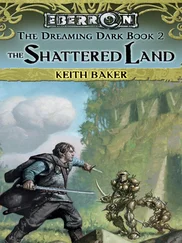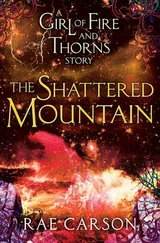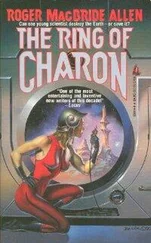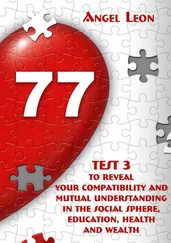Roger Allen - The Shattered Sphere
Здесь есть возможность читать онлайн «Roger Allen - The Shattered Sphere» весь текст электронной книги совершенно бесплатно (целиком полную версию без сокращений). В некоторых случаях можно слушать аудио, скачать через торрент в формате fb2 и присутствует краткое содержание. Год выпуска: 1994, ISBN: 1994, Издательство: Tor Books, Жанр: Фантастика и фэнтези, на английском языке. Описание произведения, (предисловие) а так же отзывы посетителей доступны на портале библиотеки ЛибКат.
- Название:The Shattered Sphere
- Автор:
- Издательство:Tor Books
- Жанр:
- Год:1994
- ISBN:0-312-85734-9
- Рейтинг книги:5 / 5. Голосов: 1
-
Избранное:Добавить в избранное
- Отзывы:
-
Ваша оценка:
- 100
- 1
- 2
- 3
- 4
- 5
The Shattered Sphere: краткое содержание, описание и аннотация
Предлагаем к чтению аннотацию, описание, краткое содержание или предисловие (зависит от того, что написал сам автор книги «The Shattered Sphere»). Если вы не нашли необходимую информацию о книге — напишите в комментариях, мы постараемся отыскать её.
.
Humans face two enemies—the implacably powerful Charonians who kidnapped the Earth, and the mysterious Adversary, before whom the Charonians quake in fear. Can an unlikely combination of scientists, corpses, dictators, and professional troublemakers withstand both threats and return the Earth to its proper place in the Solar System?
The Shattered Sphere — читать онлайн бесплатно полную книгу (весь текст) целиком
Ниже представлен текст книги, разбитый по страницам. Система сохранения места последней прочитанной страницы, позволяет с удобством читать онлайн бесплатно книгу «The Shattered Sphere», без необходимости каждый раз заново искать на чём Вы остановились. Поставьте закладку, и сможете в любой момент перейти на страницу, на которой закончили чтение.
Интервал:
Закладка:
“And, ah, don’t forget the Solar System reported the Charonians were using modulated gravity waves to send signals,” Wally said. “We assume the Multisystem Charonians use MG waves as well, but all our active-process gravity-wave detectors blew up as soon as Earth got here.”
“Yes, I well remember that,” Bernhardt said, with a slight smile. “I was in the next building over from one of the detectors that blew. Every active detector built since then has blown as soon as it was powered up. Too much gravity energy for an active-process detector to handle, and we never had much luck with the alternate-mode detectors based on Charonian technology. But we can still use the old-fashioned passive detectors, and they tell us enough to know Charon Central does not send commands over gravity waves.”
“How so?” Wally asked, in slightly suspicious tones.
“The passive detectors aren’t sensitive to high-frequency gravity modulation,” Bernhardt replied, “but they do detect harmonics, reverberations in the lower frequencies induced by the higher frequencies, and we can usually correlate the harmonics with some sort of activity. If the Lone World were putting out high-end MG waves, we would have spotted that long ago.”
“Right,” Sianna agreed, a bit vague about what, exactly, she was agreeing with. Her mind was working on something else. “Besides, I don’t think MG waves could be all that efficient as a pure signal system. Yes, anything that can be modulated can be used to send a signal—but there are lots of much easier, more efficient things to modulate than gravity waves. Like radio bands.”
“That’s the problem,” Sakalov said. “Gruber’s people did checks all through the EM bands—especially radio. They compared the data we’ve gotten from the Lone World against all the data types we’ve received over the last five years. The Lone World puts out a lot of radio energy, but most of it is natural. Gruber suggests that there’s a lot of interaction between the Lone World’s magnetic fields and the Sphere’s surface. In fact, that sort of interaction accounts for one family of very annoying transient bursts of static we’ve seen for years. Anyway, once Gruber’s team eliminated natural radio sources and the GIGO data, there wasn’t much left.”
Sianna looked up at Sakalov without really seeing him. GIGO. Garbage In, Garbage Out. One of the oldest and most arcane bits of computer slang. It used to mean that if the data that went in was no go, your results wouldn’t be of much use. But meanings change over time. These days, GIGO referred to data that had already been classified as garbage—static, transient spikes or dips caused by power fluctuation, image degradation cause by flaws in the equipment.
Already classified as garbage. Hold it a moment. Who looks for anything in the places they’ve already looked? Sianna worked the notepack controls.
“Miss Colette?” Dr. Sakalov was still waiting for her to say something.
“Ah, um, just a second, sir.” Okay then. They were saying that all of these emissions were GIGO data, pure noise. Someone had decided data like them were noise long before anyone even knew the Lone World existed. Knowing full well they were all waiting for her, Sianna rushed through a series of sorts and checks and groupings on the data, not quite knowing what she was looking for.
She looked up suddenly, staring with unseeing eyes past Bernhardt’s shoulder at the magnificent vista beyond. Wait a minute. That was it. She knew exactly what she was looking for. Vagueness. Yes. Yes.
“I have an idea,” she said at last. “We have a signal source with no meaningful signals. What if we’ve spent the last five years detecting signals without a source and discarding them as meaningless static? After all, the Sphere puts out a lot of noise.”
“We all know that ,” Bernhardt said, with just a trace of impatience.
“Yes, but we know it too well,” Sianna said. “I’ve been working on data for the CORE project, and every time there’s anything in the radio bands that we don’t understand, it gets charted as an ‘EM anomaly’ or a ‘transient event’ like the ones Dr. Sakalov mentioned. Once we name something, we assume we understand it, and we ignore it.”
“So you’re saying Gruber’s people have eliminated a lot of real signals, called them noise or static instead?” Bernhardt asked.
Sianna shook her head. “No, not her people—her computers . All the initial data processing is automated. If the computer is told that datapoints with thus-and-such characteristics are garbage, it discards every subsequent datapoint with the same profile. The humans running the data-processing system never even get to see that stuff unless they wade through all the raw data manually.”
“And we just got through saying that going through even the non-rejected data we have after twelve hours could take a week,” Bernhardt said.
“Yes sir. But if you’ll pardon the expression, it’s possible that searching that non-rejected data makes about as much sense as what the drunk did when he dropped his keys on a dark street.”
“I beg your pardon?” Bernhardt said.
Sakalov let out a dry chuckle. “The young lady has indeed attended my lectures, Wolf. It is an example I often use. The drunk drops his keys in the dark, but searches for them under a street lamp, where the light is better.”
“So you are suggesting that the Lone World is transmitting its orders at frequencies we don’t even know we aren’t looking at?” Bernhardt said.
Sianna nodded. “It’s possible,” she said. “After all, we don’t know for sure what a command signal from Charon Central looks like.”
“Quite so,” Sakalov said. “We assume it will in large part resemble the signals intercepted in the Solar System and the signals we have intercepted as they are sent between lower-function Charonians— except it’s obvious the command signals don’t resemble those signals completely, or else we would have spotted them by now.”
“So what could they be?” Bernhardt asked.
Sakalov nodded toward the notepack that Sianna was holding. “Anything in there, or maybe a dozen other things that aren’t there. Or maybe the command signals are expressed as some complex phase relationship between two seemingly unrelated signals.” Sakalov shrugged. “Maybe they’re meant to be read backwards. Or maybe they are modulated or digitalized at such a high—or low—rate of speed we didn’t recognize them as signals.”
“Too fast I can understand,” Bernhardt said. “But too slow ?”
“It would be damned tough to recognize a Morse code message if the dots were two weeks long and the dashes were a month.”
“Hmmph.” Bernhardt turned toward Sianna. “So, now that you have said we must comb through all the parts of the haystack that we thought we could ignore, where do you suggest we start?”
“With the vague stuff,” Sianna said. “There’s lots of well-explained natural sources, but the rejected-data log is full of things labeled ‘General Static’ and ‘Unspecified Transient EM event.’ If we have a look at all that—”
“And then compare that against any old rejected data,” Wally said, cutting in eagerly. “We could look at stuff from what we now know to be the Lone World’s orbital track,” he went on, leaning forward eagerly. “I bet we’ve got a big old stack of old data labeled ‘static’ that came from the Lone World—even though we didn’t know the Lone World was there until just a little while ago.”
“Yes! Right!” Sianna said.
Sianna stood up and started pacing excitedly. “For five years we’ve been observing the Sphere, and for all that time there’s been this tiny, hard-to-see dot going around it, sometimes at the edge of the Sphere as seen from Earth, sometimes in front of it, sometimes behind. We’re bound to have picked up all sorts of stuff from the Lone World without knowing what it was.” She paused for a second and thought. “Hey, data coming from the now-known coordinates of the co-orbital R-H sets too! They’d make a perfectly good signal-relay network.” She paused in her pacing and turned toward Dr. Sakalov. “The data archives will still have all that, won’t they?”
Читать дальшеИнтервал:
Закладка:
Похожие книги на «The Shattered Sphere»
Представляем Вашему вниманию похожие книги на «The Shattered Sphere» списком для выбора. Мы отобрали схожую по названию и смыслу литературу в надежде предоставить читателям больше вариантов отыскать новые, интересные, ещё непрочитанные произведения.
Обсуждение, отзывы о книге «The Shattered Sphere» и просто собственные мнения читателей. Оставьте ваши комментарии, напишите, что Вы думаете о произведении, его смысле или главных героях. Укажите что конкретно понравилось, а что нет, и почему Вы так считаете.









![Ширли Мерфи - The Shattered Stone [calibre]](/books/436059/shirli-merfi-the-shattered-stone-calibre-thumb.webp)


